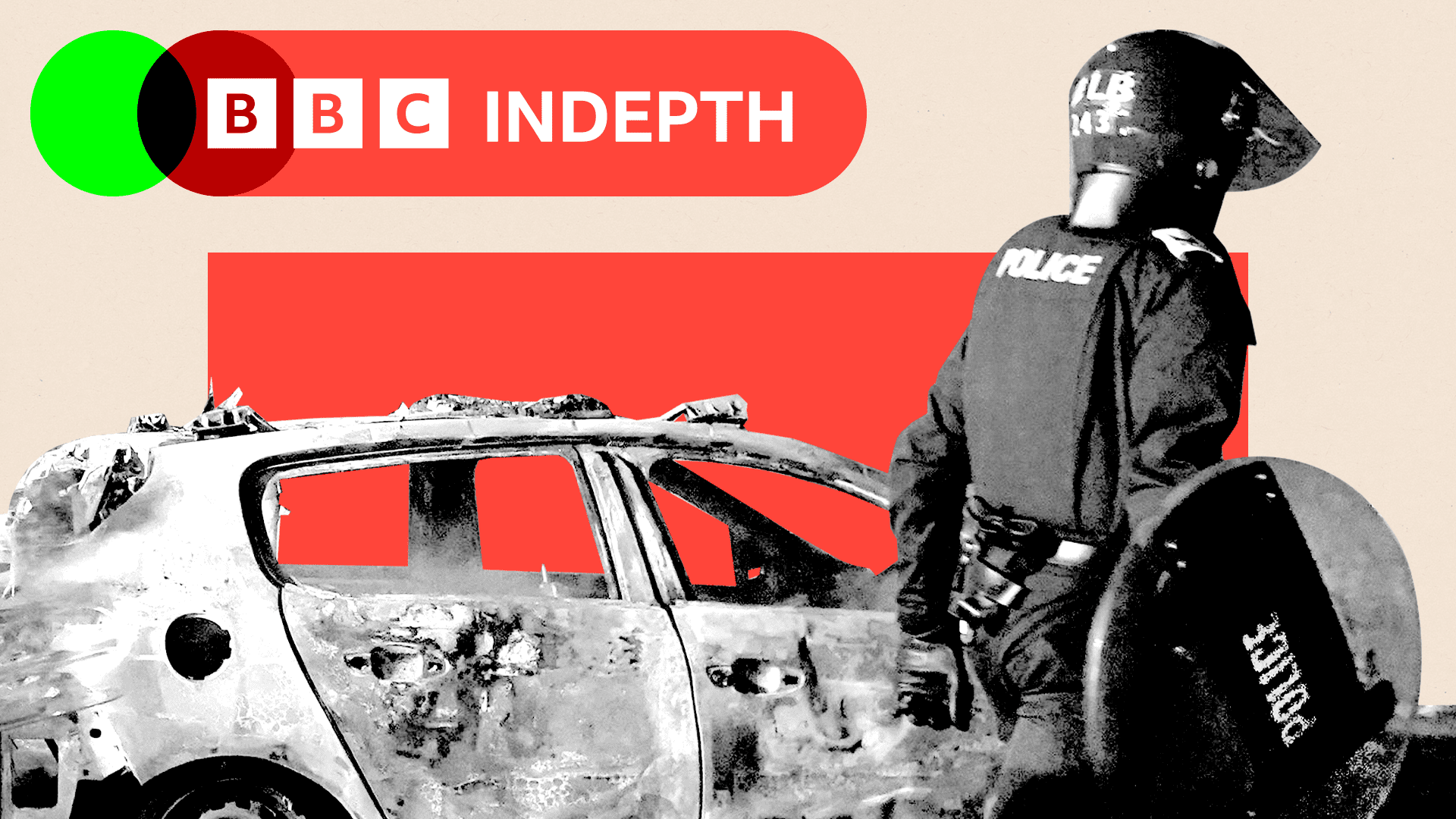Journalist resists police demands for rioter photos
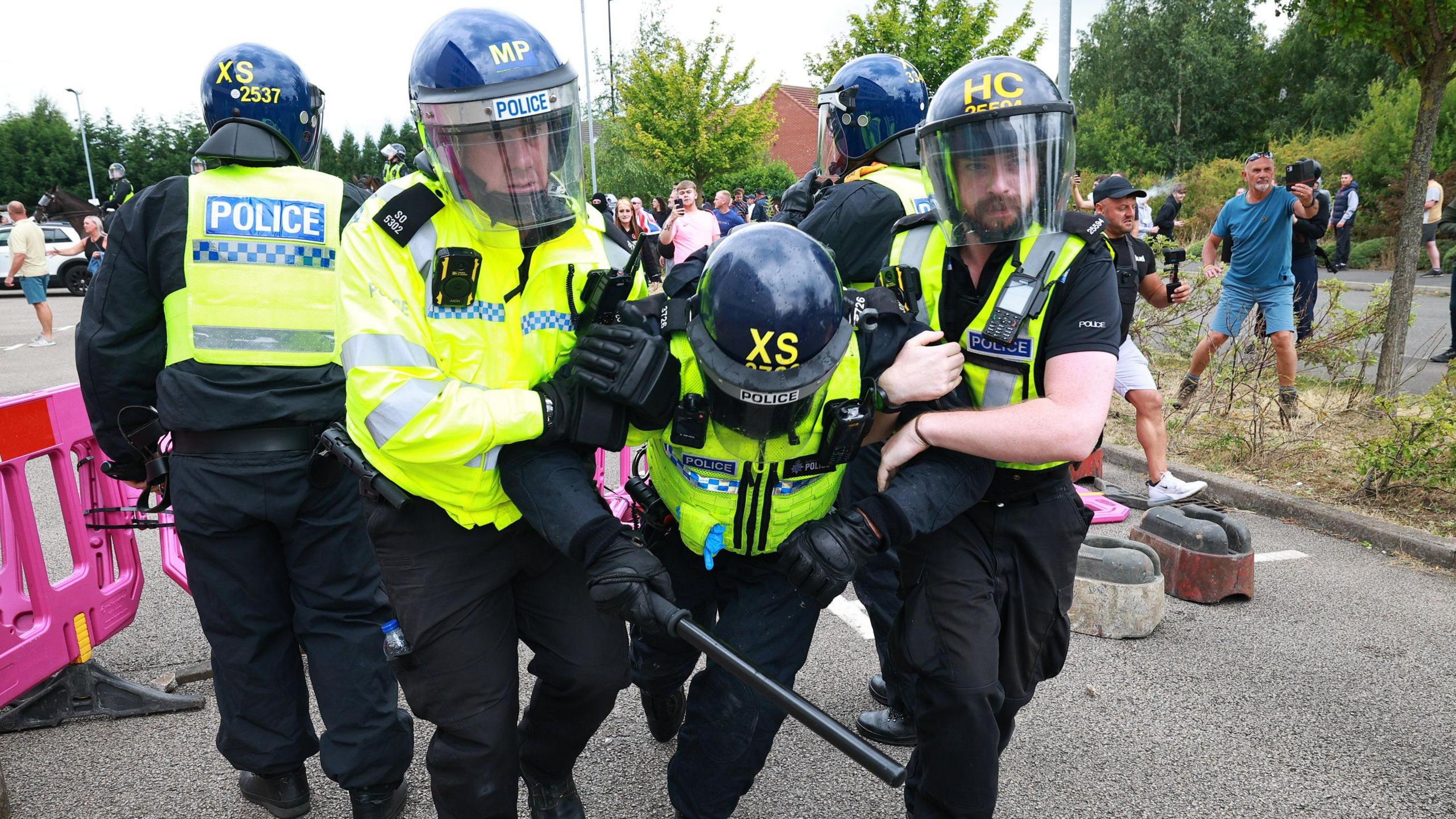
Trouble flared outside the Holiday Inn Express in Rotherham
- Published
A photojournalist has resisted demands by police to hand over images of rioters over fears it could put him and other colleagues in danger and infringe media freedom.
Investigators at South Yorkshire Police (SYP) have said they were considering applying for a court order to force north-west based freelancer Joel Goodman to disclose photos of the disorder in Rotherham outside a hotel housing asylum seekers.
Mr Goodman said it would damage trust if journalists were seen to be acting in the interests of the police, while the National Union of Journalists (NUJ) said attempts to "strong-arm" reporters were "an affront to media freedom".
The force said it respected those concerns, adding its priority was identifying those responsible for the disorder.
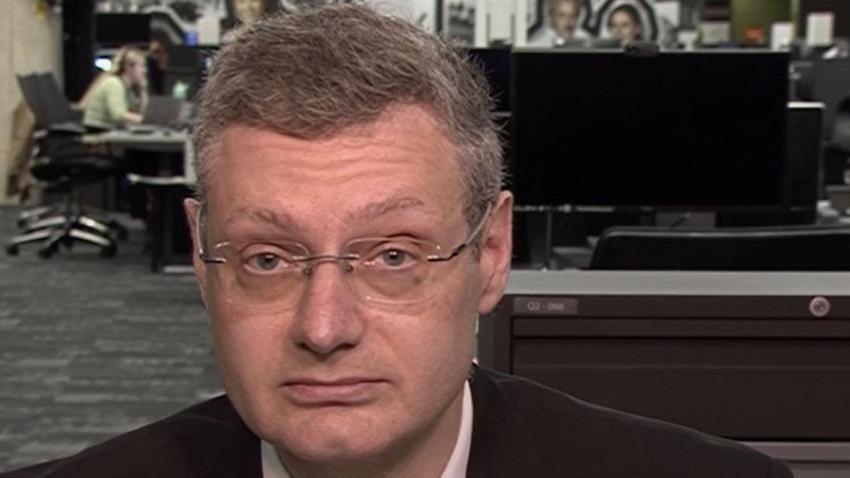
Joel Goodman said disclosing the images would cause people to lose trust in him
Mr Goodman covers a wide range of news in his photography and famously found one shot of his, which depicted the aftermath of a New Year's Eve confrontation on a Manchester street and was compared to the work of art's Old Masters, going viral in 2016.
His photos of the riot, where a mob of hundreds forced entry to the Holiday Inn Express setting fires and clashing with police, were widely published in the media.
He said he could only cover the "horrific violence" on the ground because he was able to "work freely", and handing images to police would put him at risk.
If his subjects thought all his work would "end up in the hands of the police then they won't trust me", he told BBC Newsnight.
"It's not just me, next time it won't be me, it could be one of my colleagues who is assaulted for being a copper's nark."
The case has led the NUJ to write to the National Police Chiefs' Council to object to what it described as police attempting to use journalists as "investigative shortcuts".
Michelle Stanistreet, the union's general secretary, said these attempts would "only serve to erode the "safety of journalists working in challenging circumstances".
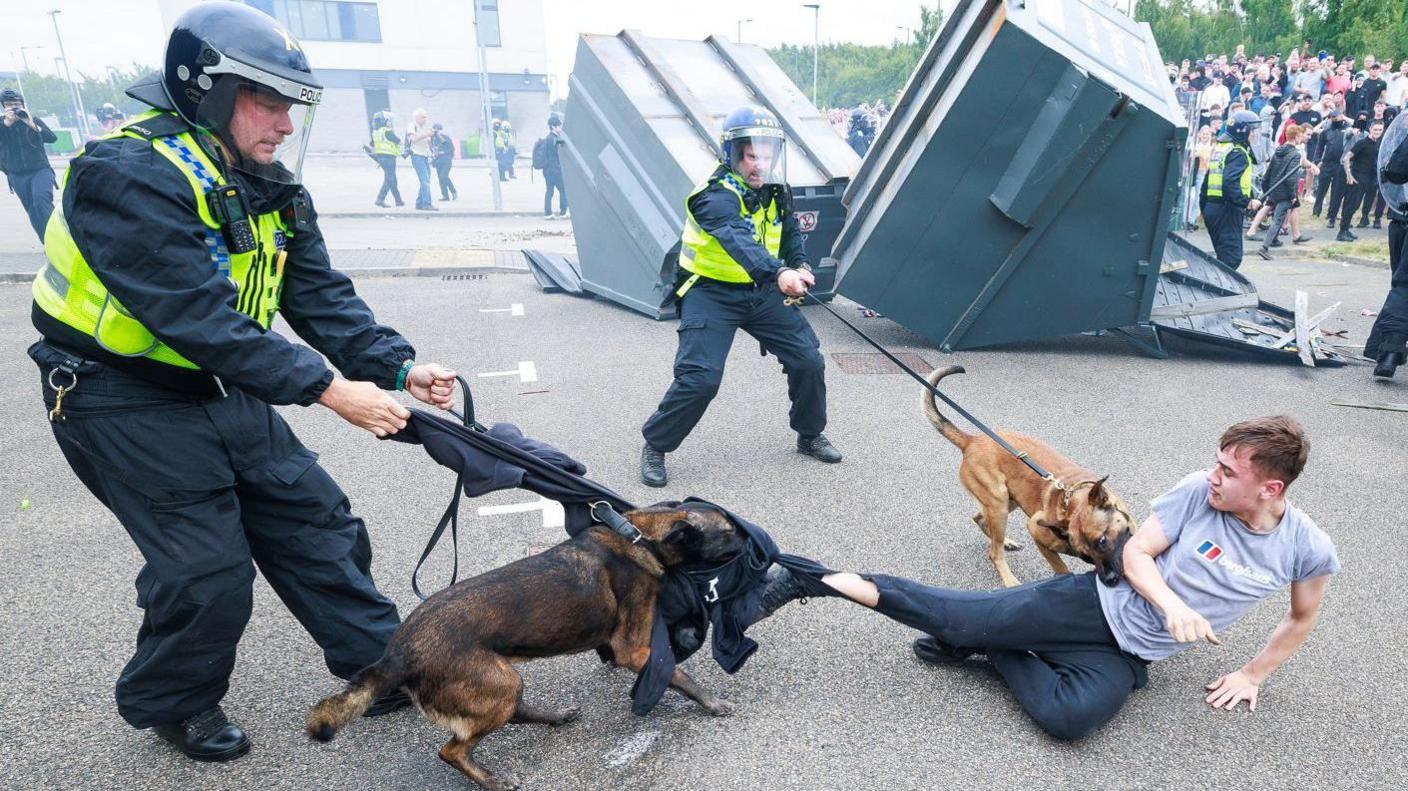
Police previously described the violence as "nothing short of disgusting"
More than 60 officers were hurt in the riot and 18 people have so far appeared in court charged with various offences.
A force spokesman said the law around criminal evidence allowed police to apply to a judge for a court order forcing journalists, "in some circumstances", to disclose material.
He said these production orders were regularly granted for evidence like phone records or bank accounts.
"We are considering applying to the court for this sort of order in relation to the images," the force said.
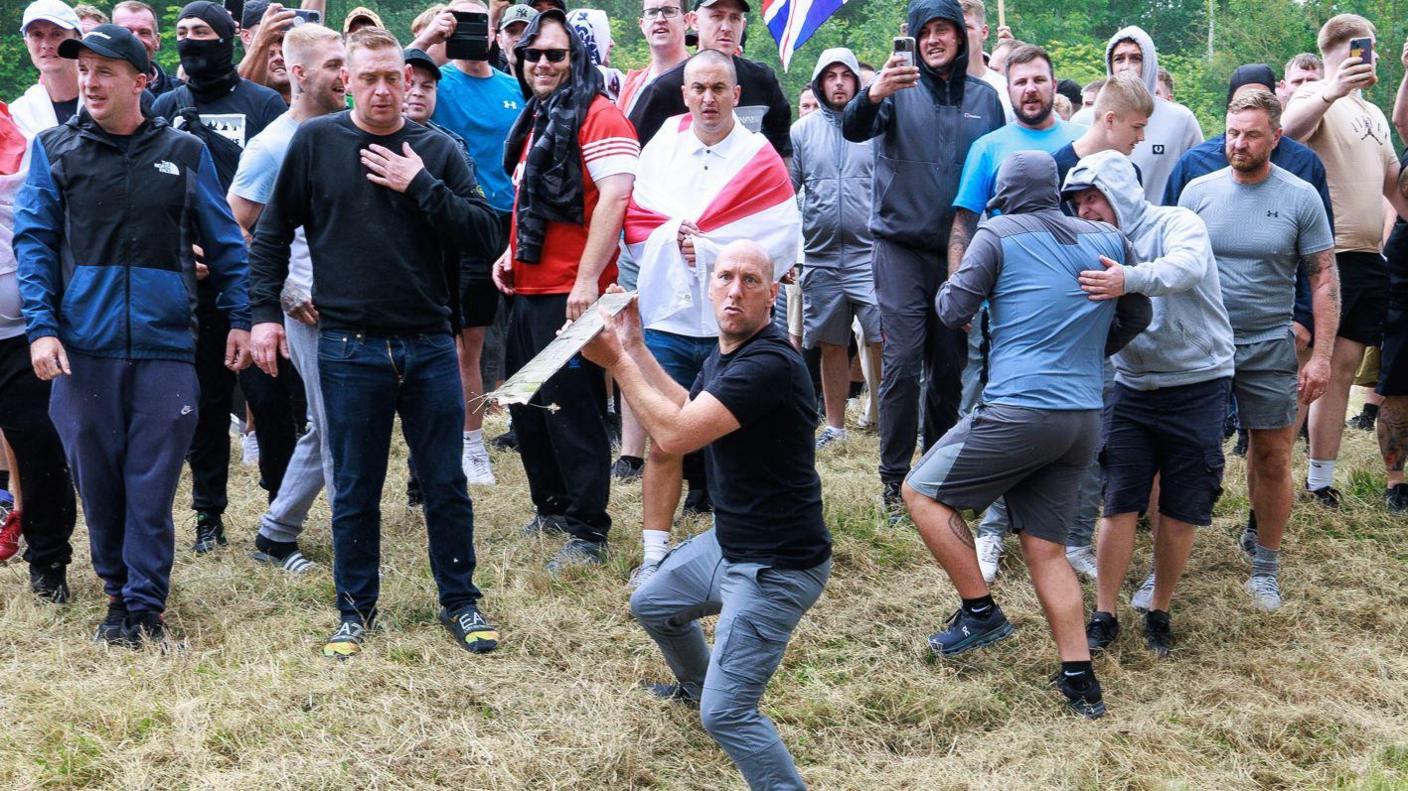
Protesters smashed windows and set fires during the disorder
A judge can agree to such an order if the material is likely to be relevant to an offence, or deemed to be of substantial value to an investigation.
But police have to specify what material they are looking for in these applications, rather than file a broad request.
Material given to a journalist in confidence is excluded, but that exemption is unlikely to be used in the case of a public riot.
Ms Stanistreet said the NUJ had also written to a UK government committee on the safety of journalists to express concerns.
She said there was a "collective responsibility" to ensure reporters could work safely and "free from interreference".
- Published12 August 2024
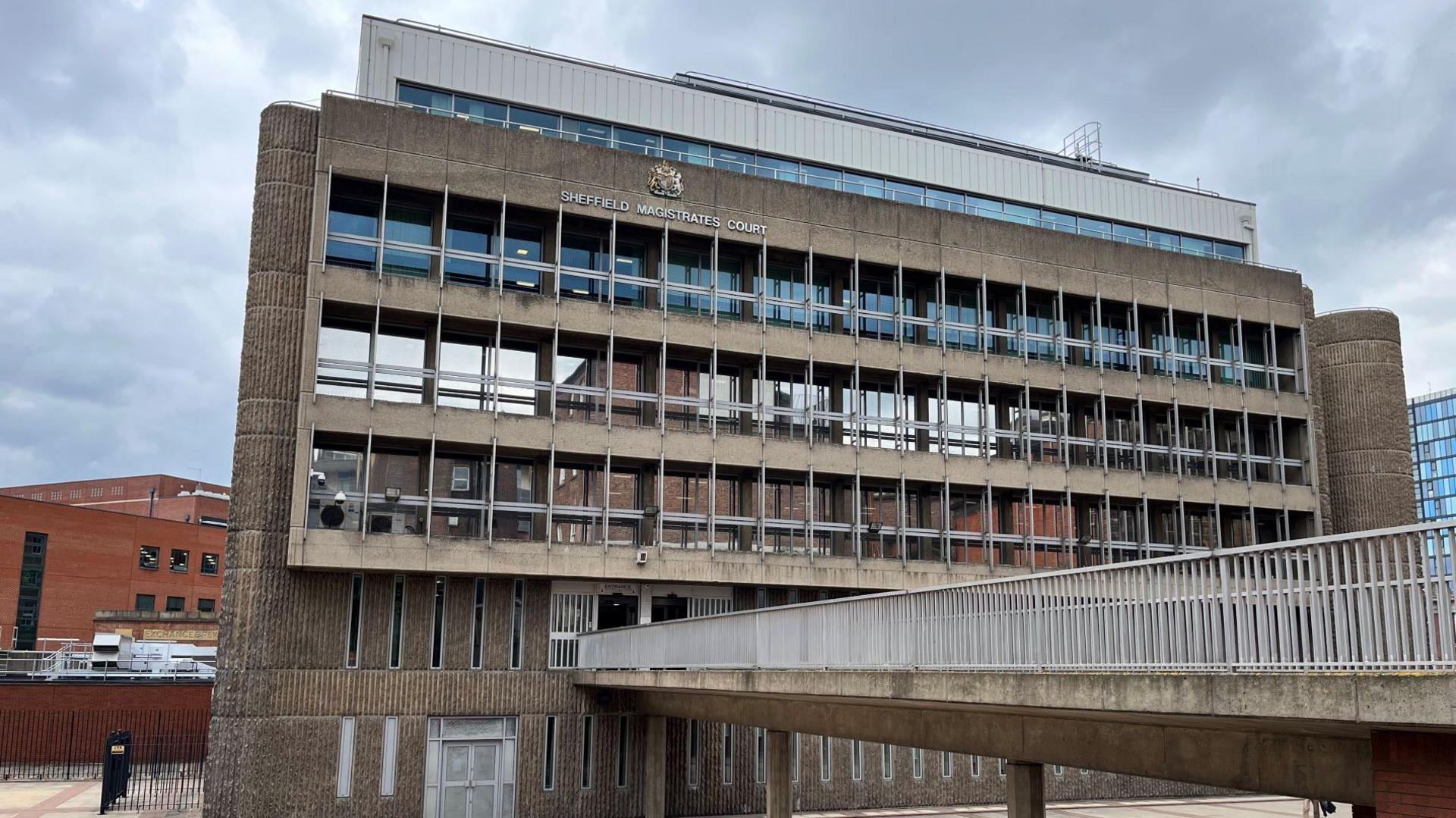
- Published11 August 2024
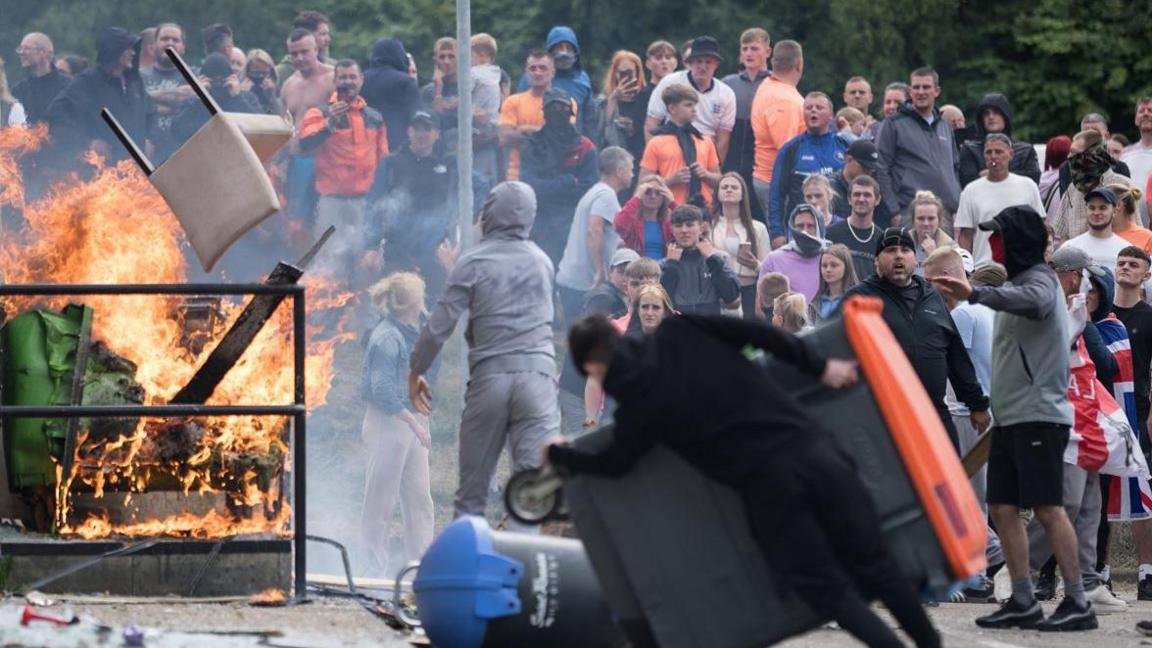
- Published5 August 2024
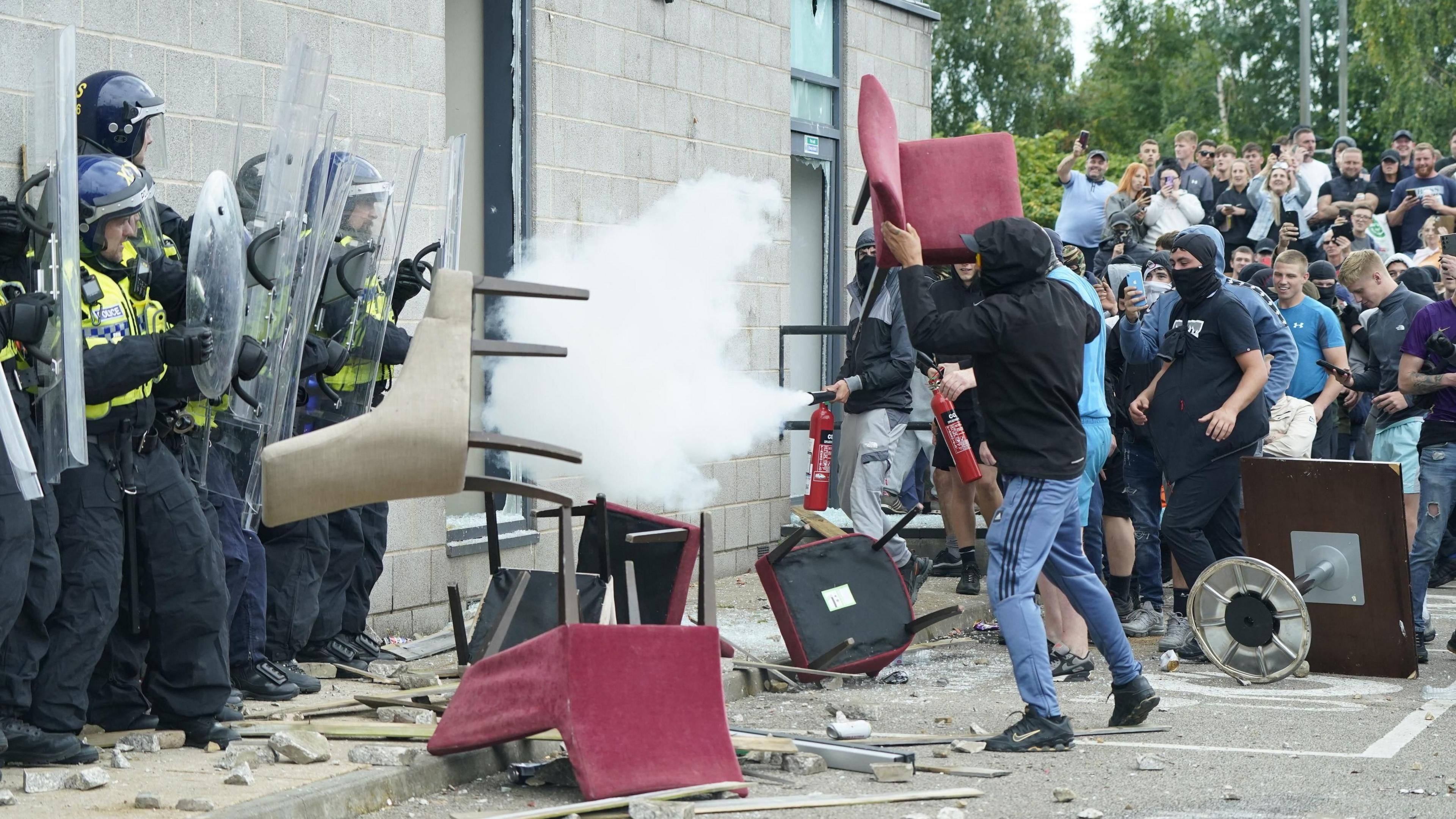
- Published4 August 2024
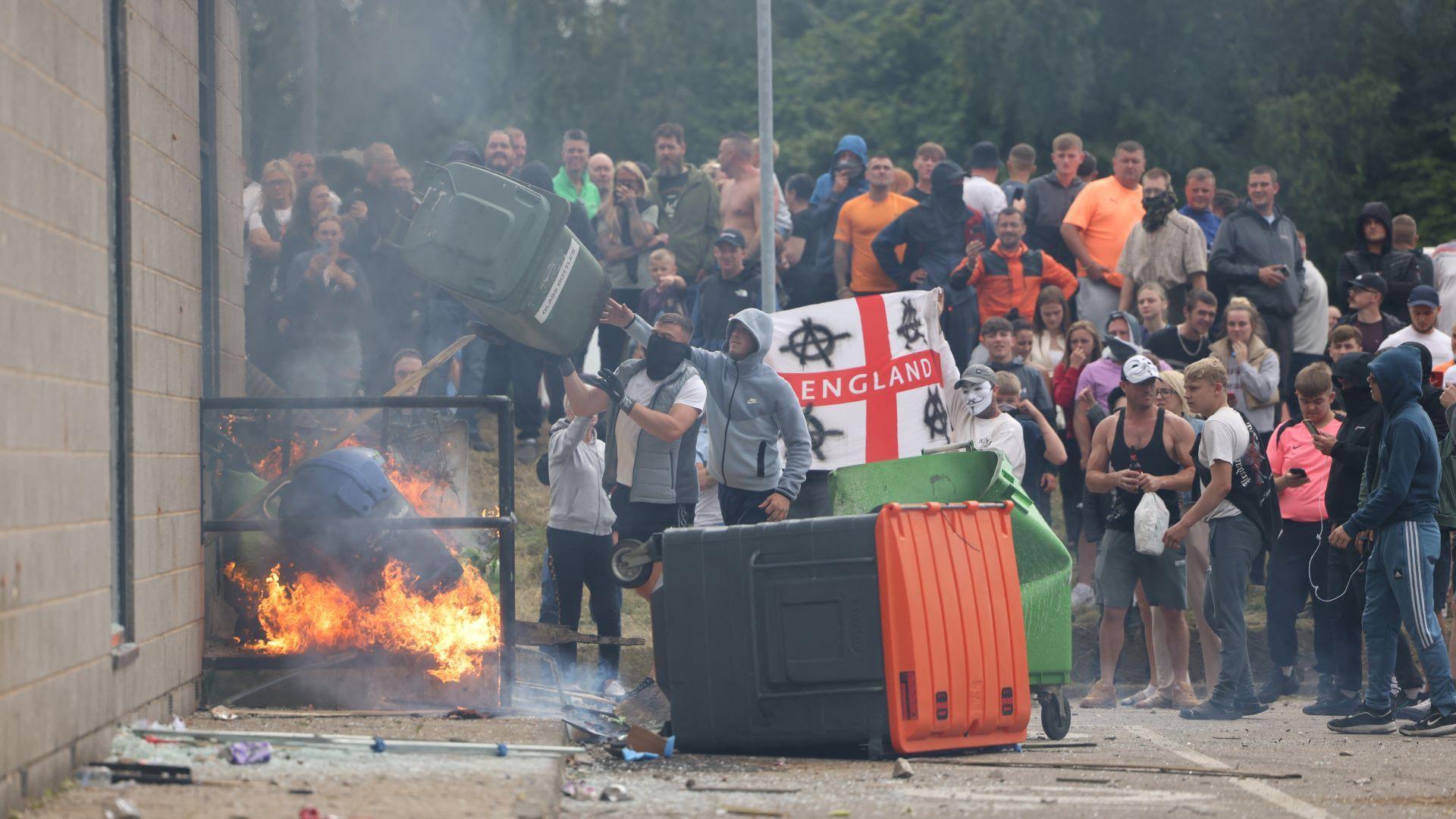
- Published11 August 2024
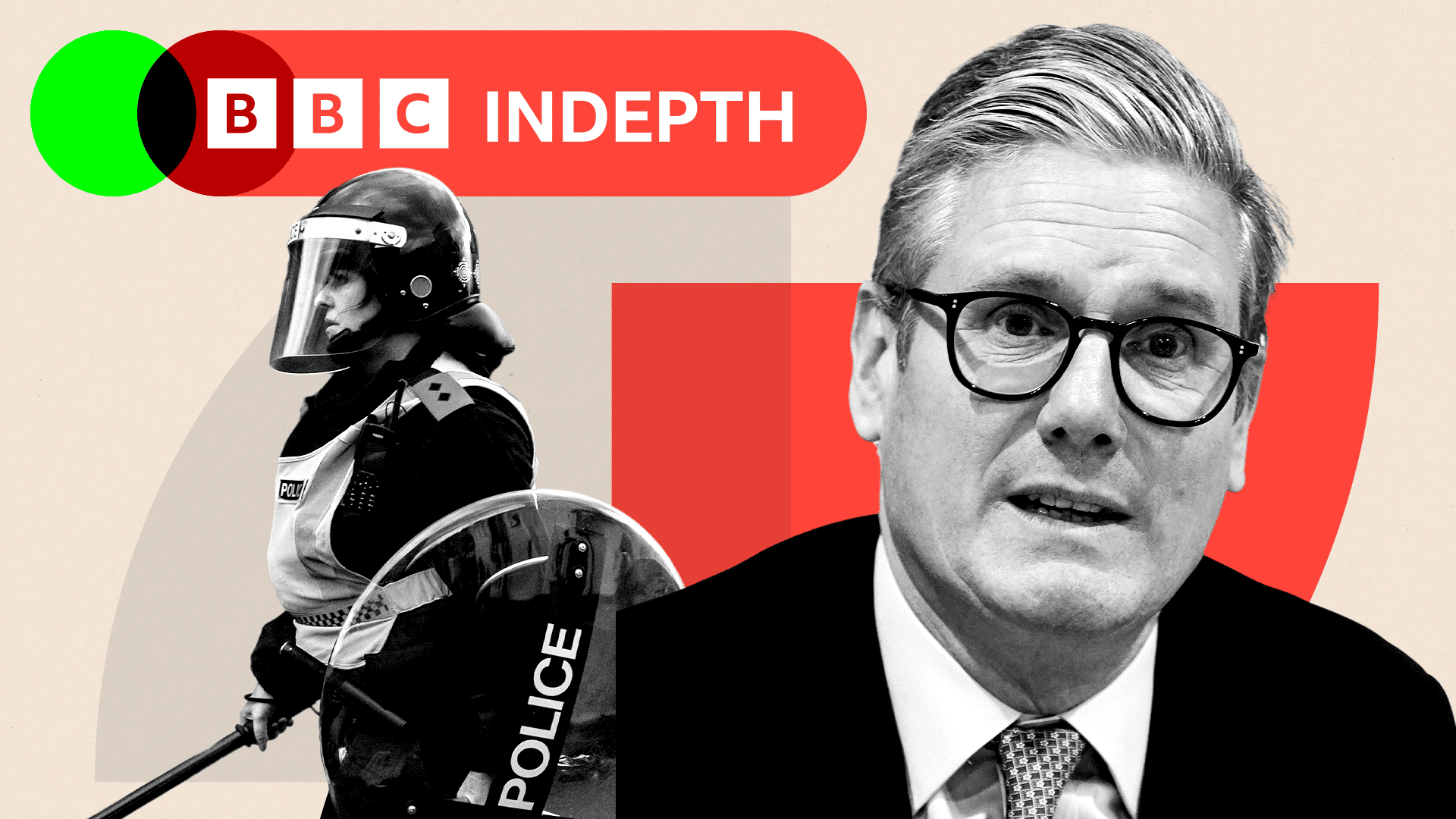
- Published5 August 2024
